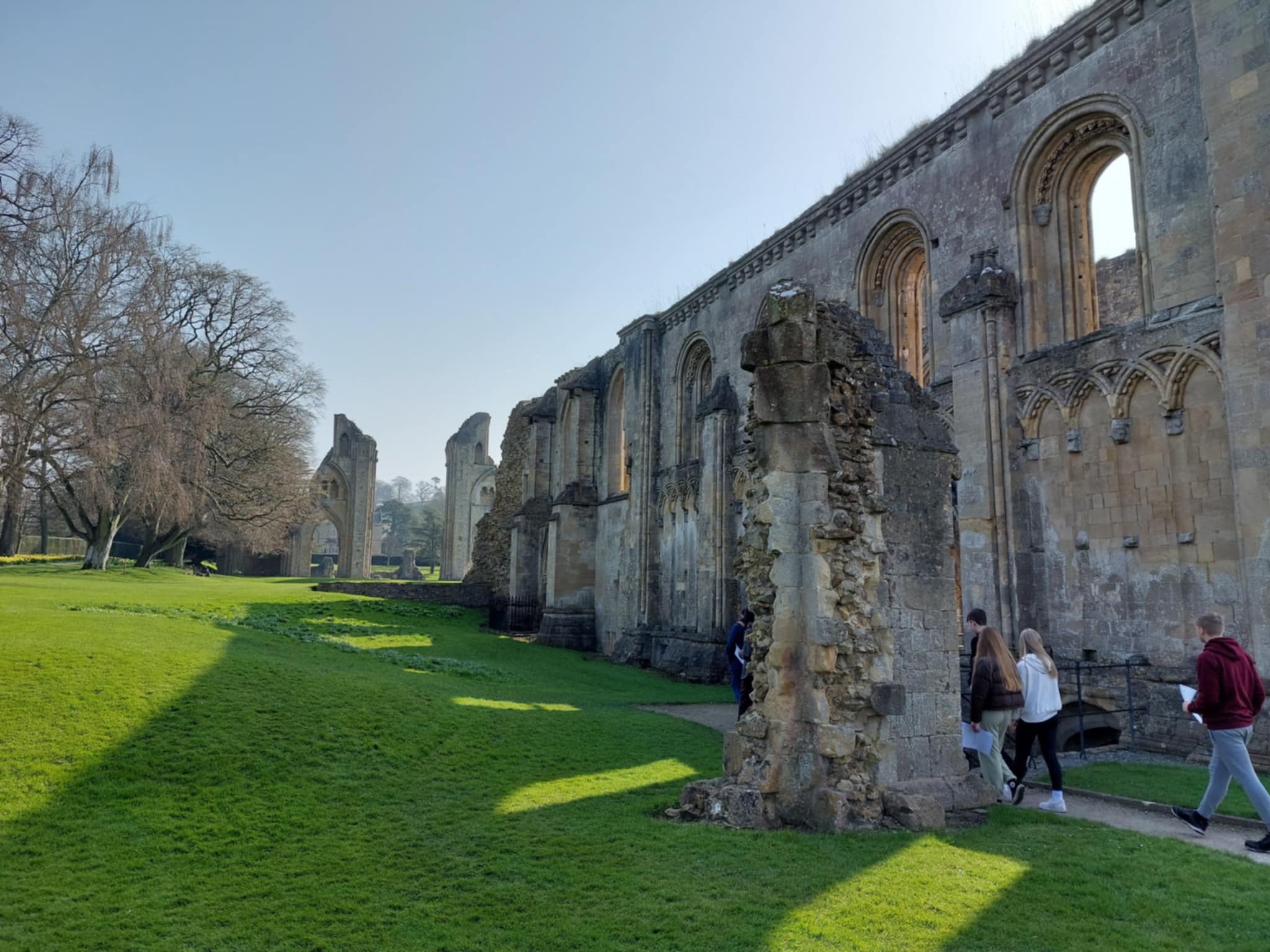The Joe Scott award 2024: History Around Us at Glastonbury Abbey
24 April 2025
Richard Kerridge, History Subject Advisor

The Schools History Project (SHP) presents an award every year to the top-performing student on the History Around Us unit of the OCR GCSE History B specification. In this blog I’ll summarise why this unit is such a key part of our qualification and share the experiences of the 2024 Joe Scott award and her teacher.
The History Around Us unit
The HAU unit is one of five equally weighted units in the OCR GCSE History B specification. This makes this qualification unique across all history GCSEs: all other specifications place the compulsory site study within another unit.
One of SHP core principle’s states:
“Engaging with ‘history around us’, and considering what the historic environment can tell us about people’s lives and beliefs in the past, are some of the most stimulating aspects of learning history. The Project believes that there should be more opportunities for children and young people to study ‘history around us’” (SHP Core Principle #5).
To that end, teachers of our History B GCSE get to choose the site they study, therefore ensuring it can be engaging and relevant for their students. Teachers really enjoy studying local history and have written about local history recently in these guest blog posts by teachers Ed Durbin, Lead Practitioner in History at Yate Academy, and Imogen Wiltshire, Head of History at Framingham Earl High School.
The 2024 Joe Scott winner
The Schools History Project Annual Conference has been called ‘Glastonbury for History teachers’. So it seems only fitting that the winner of the 2024 Joe Scott award studied Glastonbury Abbey as their site for the HAU unit.
The History department of the Castle School in Taunton is led by Jack Walker. Jack thoroughly enjoys the HAU unit: not only does it allow him to get outside and take his students to an interesting site, but “it connects us to our surroundings and helps us recognise that everything local has a history”.
Although the abbey is now in a ruinous state, there’s evidence of religious buildings dating back to the Anglo-Saxon period and the prosperous monastery lasted from the 10th century to the Dissolution.
Jack chose Glastonbury Abbey because it: “has good connections to the national picture and has great links to mythological legends, which make the site more engaging” and “it has everything to spark my students’ imaginations with the possibilities of what was there”. He added: “Local history is important as we can learn about the connections we have to wider society and gain a picture of the place we live in and how we fit into that”.

Jack’s enjoyment of HAU became evident when we spoke to Yasmin, the winner of the Joe Scott Award for 2024. Yasmin remembered a lot about the abbey and was keen to tell us about its use as a symbol of power in the region. She mentioned the kitchens at the abbey, “… the fact that there were four ovens meant that there were many important visitors to the abbey”. She mentioned that the abbey employed costumed guides and performers to show her and her classmates what went on in the kitchen and elsewhere.
Jack was keen to highlight the role the abbey played in the religious movements of its time as well as the destruction of it during the Dissolution. The visit is used to stimulate interest among the students. Talking with Yasmin, this approach clearly works and shows how there is no one correct way to teach this unit.
Yasmin has been inspired by her History GCSE and is now studying Biology, Chemistry and Maths at A Level where, after university, a career in medicine or teaching is her aim.
More information
Joe Scott was one of the original members of the Schools Council History Project (SCHP), which was the forerunner of the Schools History Project. Dan Lyndon-Cohen, the Director of the Schools History Project, shared more information about Joe and the 2023 winner in his blog.
The Schools History Annual Conference 2025 will take place at Leeds Trinity University on 11-13 July. Tickets are still available online and you can view the full programme on the SHP website. Looking forward to meeting many of you in Leeds!
Stay connected
If you have any questions, you can email us at history@ocr.org.uk, call us on 01223 553998 or message us on X (formerly Twitter) @OCR_History. You can also sign up to subject updates to keep up to date with the latest news, updates and resources.
If you are considering teaching any of our qualifications, use the online form to let us know, so that we can help you with more information.
About the author
Richard joined Cambridge International Assessment in September 2019 and OCR in October 2022. Prior to joining OCR, he taught History for seventeen years. He was a Deputy Head of Sixth Form, Head of Humanities, SSAT Lead Practitioner as well as writing and contributing to textbooks and exam-board resources. He has presented at the Historical Association and Schools History Project Annual Conferences and for Keynote Education. Richard is very proud to be an Honorary Fellow of the Historical Association. He enjoys being with his family, friends and two dogs.
Related blogs